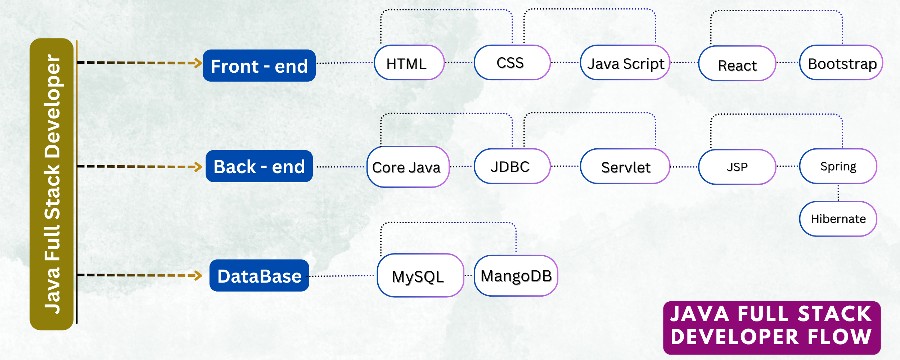Looking For Best Java Full Stack Developer Course Training Institute & Classes in Pune
Elevate Your Skills By Enrolling in Victorious Digital, Practical Java Full Stack Developer Course in Pune That Offers Placements Support at Affordable Fees
Join Our Renowned Training Program
Java Full Stack Developer Course in Pune
Join Best Java Full Stack Developer Course In Pune
Java Full Stack Developer Course at Victorious Digital
In today’s fast-paced digital world, full stack developers are in high demand, especially those proficient in Java—a powerful and versatile programming language. Our Java Full Stack Developer Course at Victorious Digital is designed to equip you with the skills necessary to build dynamic, scalable web applications from the ground up.
Whether you are a beginner or an experienced developer, this course will guide you through both front-end and back-end development, ensuring you master key technologies like HTML, CSS, JavaScript, and Spring Framework. With real-world projects, expert mentorship, and hands-on experience, you’ll be prepared to excel in the competitive tech industry. Join us and take the first step toward becoming a successful full stack developer!
DO YOU WISH BECOME JAVA FULL STACK DEVELOPER CERTIFIED?
ENQUIRY FORM FOR FREE DEMO
Java Full Stack Developer Course Overview
A Java Full Stack Developer is a highly skilled professional who can handle both the front-end and back-end development of web applications using Java as the core programming language. This role requires proficiency in multiple layers of software development, including the client side (HTML, CSS, JavaScript), server-side technologies (Java, Spring Boot), databases (SQL, NoSQL), and version control systems (Git). Java Full Stack Developers are capable of creating responsive and robust web applications, ensuring seamless user experience, and managing server-side logic efficiently.
At Victorious Digital, our Java Full Stack Developer Course covers all the essential tools and frameworks required to become a proficient full stack developer. The course emphasizes building end-to-end applications, from designing user interfaces to implementing complex backend logic, giving students the ability to tackle projects of any scale.
Java Full Stack Developer Journey

